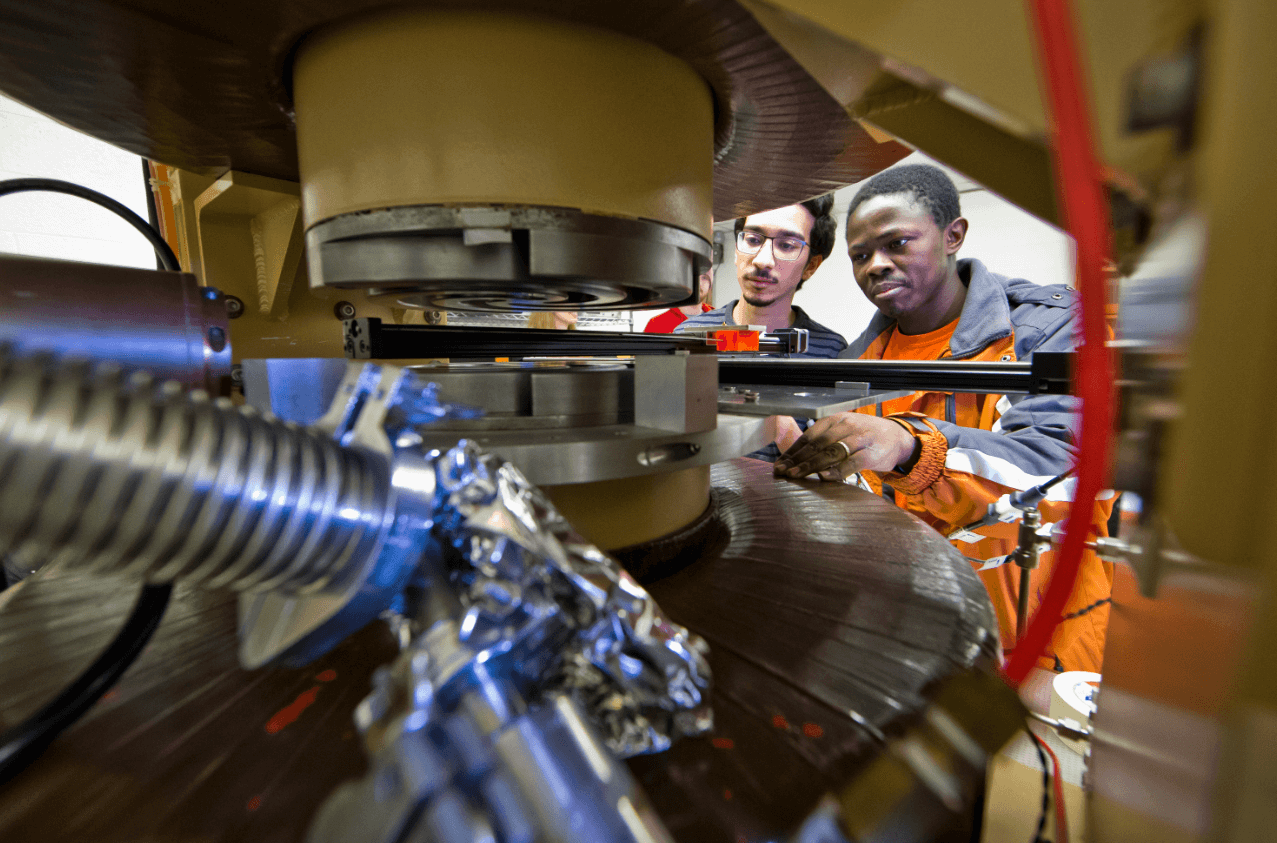Gives students a chance to explore more fundamental aspects of materials science involving different types of materials.
- ENMA 400: Introduction to Atomistic Modeling in Materials
- ENMA 410: Materials for Energy I
- ENMA 411: Materials for Energy II
- ENMA 412: Fundamentals of Solar Cells
- ENMA 414: Introduction to Solid State Ionics
- ENMA 421: Design of Composites
- ENMA 422: Radiation Effects
- ENMA 425: Introduction to Biomaterials
- ENMA 426: Reliability of Materials
- ENMA 436: Intro to Quantum Materials and Devices
- ENMA 440: Plasma Processing of Materials
- ENMA 443: Introduction to Photonic Materials, Devices and Reliability
- ENMA 445: Liquid Crystals and Other Monomeric Soft Matter Materials
- ENMA 462: Smart Materials
- ENMA 463: Macroprocessing
- ENMA 464: Environmental Effects on Engineering Materials
- ENMA 466: Advanced Materials Fabrication Laboratory
- ENMA 473: Engineering Using High Strength Metals and Alloys
- ENMA 475: Diffraction Techniques in Materials Science
- ENMA 481: Introduction to Electronic and Optical Materials
- ENMA 489C: Electrochemical Energy Engineering
- ENMA 495: Polymeric Engineering Materials
- ENMA 496: Processing and Engineering of Polymers
- ENMA 499: Laboratory Project
Focuses on understanding the structure and properties of soft structured matter and its building blocks, including polymers, colloids, and liquid crystals. Gives students a chance to explore the development and application of engineered materials for applications in human and other biological systems.
- ENMA 400: Introduction to Atomistic Modeling in Materials
- ENMA 421: Design of Composites
- ENMA 422: Radiation Effects
- ENMA 425: Introduction to Biomaterials
- ENMA 426: Reliability of Materials
- ENMA 445: Liquid Crystals and Other Monomeric Soft Matter Materials
- ENMA 463: Macroprocessing
- ENMA 464: Environmental Effects on Engineering Materials
- ENMA 472: Additive Manufacturing of Materials
- ENMA 473: Engineering Using High Strength Metals and Alloys
- ENMA 475: Diffraction Techniques in Materials Science
- ENMA 495: Polymeric Engineering Materials
- ENMA 496: Processing and Engineering of Polymers
- ENMA 499: Laboratory Project
Focuses on understanding how materials are used in aplications and how their behavior can be tailored for various applications.
- ENMA 400: Introduction to Atomistic Modeling in Materials
- ENMA 410: Materials for Energy I
- ENMA 414: Introduction to Solid State Ionics
- ENMA 421: Composite Materials
- ENMA 422: Radiation Effects
- ENMA 426: Reliability of Materials
- ENMA 436: Intro to Quantum Materials and Devices
- ENMA 440: Plasma Processing of Materials
- ENMA 443: Introduction to Photonic Materials, Devices and Reliability
- ENMA 462: Smart Materials
- ENMA 463: Macroprocessing
- ENMA 464: Environmental Effects on Materials
- ENMA 466: Advanced Materials Fabrication Laboratory
- ENMA 472: Additive Manufacturing of Materials
- ENMA 473: Engineering Using High Strength Metals and Alloys
- ENMA 476: Manufacturing: Materials Design and Systems Integration
- ENMA 481: Introduction to Electronic and Optical Materials
- ENMA 489C: Selected Topics in Engineering Materials; Continuum Modeling of Materials
- ENMA 495: Polymeric Engineering Materials I
- ENMA 496: Processing and Engineering of Polymers
- ENMA 499: Laboratory Project
Focuses on the processig and applications of materials used to generate, transport, and store energy.
- ENMA 400: Introduction to Atomistic Modeling in Materials
- ENMA 410: Materials for Energy I
- ENMA 411: Materials for Energy II
- ENMA 412: Fundamentals of Solar Cells
- ENMA 414: Introduction to Solid State Ionics
- ENMA 422: Radiation Effects
- ENMA 426: Reliability of Materials
- ENMA 436: Intro to Quantum Materials and Devices
- ENMA 440: Plasma Processing of Materials
- ENMA 443: Introduction to Photonic Materials, Devices and Reliability
- ENMA 462: Smart Materials
- ENMA 463: Macroprocessing
- ENMA 464: Environmental Effects on Materials
- ENMA 466: Advanced Materials Fabrication Laboratory
- ENMA 472: Additive Manufacturing of Materials
- ENMA 489C: Electrochemical Energy Engineering
- ENMA 495: Polymeric Engineering Materials
- ENMA 499: Laboratory Project
